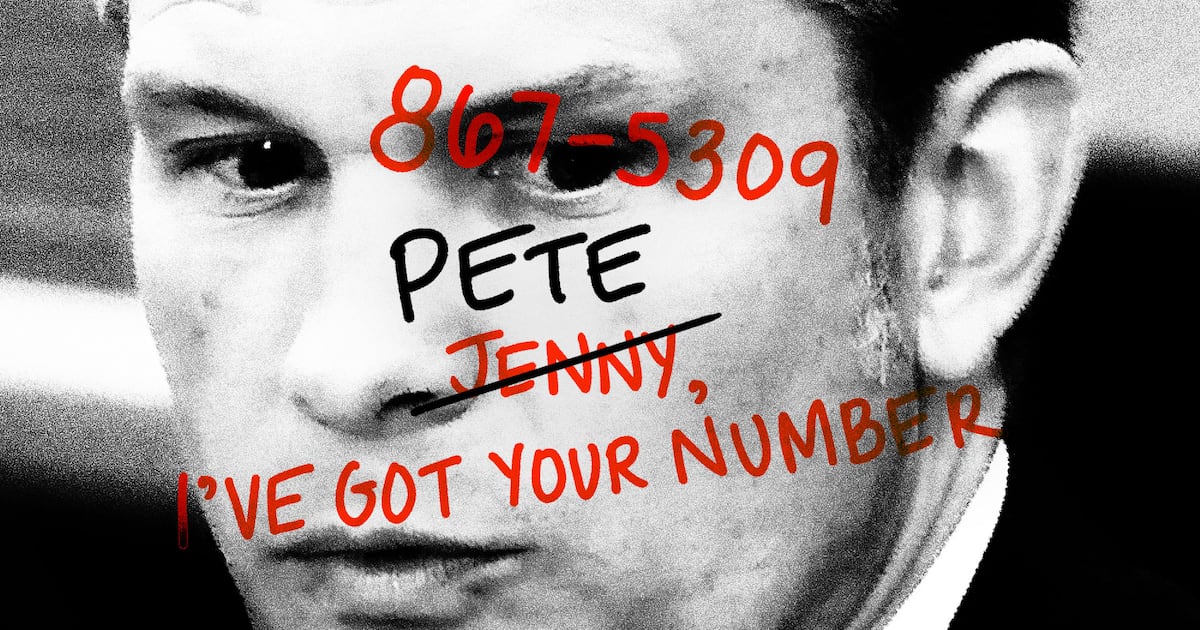Nora Ephron's new book, I Remember Nothing And Other Reflections, hits bookstores next week. On Friday, at a breakfast co-hosted by Credit Suisse and The Daily Beast, Ephron took questions from Tina Brown and a small audience about her illustrious, shape-shifting, constantly surprising career, and the great loves (and great disappointments) in her life.
"On some level, my life has been wasted on me. After all, if I can't remember it, who can?" goes a line in the new book. Ephron's trenchant, witty style shines in her numerous hit films: Heartburn, When Harry Met Sally…, Sleepless in Seattle, Julie & Julia, among many other charming, classic comedies. When Brown asked Ephron about working with Meryl Streep, Ephron said she admired Streep's great talents and hard work, and the actress' ability to "become 6-foot-2 like Julia Child" with the help of prosthetic shoes and clever props.
Before she was a thrice-Oscar-nominated screenwriter, Ephron was a journalist, who came up through the ranks at a time when women were not exactly welcome, let alone mentored or promoted. "Girldom," Ephron called female ascension at Newsweek—where women weren't writers "because that's just the way it's always been," as one powerful newsman had explained, complacent or complicit.

Despite the obstacles, however, Ephron excelled, moving from errand girl to bona fide writer at the New York Post and Esquire. Brown asked Ephron about the golden age of journalism, sparking mentions of Tom Wolfe and Calvin Trillin as the all-time greats, and some of Ephron's favorites. Trillin himself happened to be in the audience. "I just can't believe you were so nice about Lillian Hellman!" Trillin boomed from the crowd, as the questions wound down, referring to Ephron's chapter on the notoriously difficult Hellman.
"I'm fundamentally a journalist," she told Brown. In the book, she writes about her love affair with journalism, as well as with some journalists, including the one for whom she skipped a Vietnam protest in order to sleep with.
"Norman Mailer wrote an entire book about this march, called The Armies of the Night. It was 288-pages long. It won the Pulitzer Prize. And I can barely write two paragraphs about it. If you knew Norman Mailer and me and were asked to guess which of us cared more about sex, you would, of course, pick Norman Mailer. How wrong you would be."
"I'm fundamentally a journalist," she told the crowd. In the book, she writes about her love affair with journalism, as well as with some journalists.
Another chapter in her book is a simple list: "Twenty-five Things People Have a Shocking Capacity to Be Surprised by Over and Over Again." Ever prescient, No. 9 is "The Democrats are deeply disappointing." When Brown asked Ephron about the president, her reply was, "After I read David Remnick's book on Obama, I knew he would never be able to rise above the need to be a consensus-seeker. I just thought, oh... That was when I understood."

In her writing and her comic recounting, Ephron's disappointments—politicians, ex-husbands, her "Aruba" hair issue (read the book)—never seem to truly embitter her; they're just fodder for calmly satiric material. After breakfast ended and the audience departed, she took some additional questions with The Daily Beast. (Ephron's son is a reporter at The Daily Beast.) When asked what, if anything, makes her truly angry, she paused.
"You know, I have to think about it. I don't want to not answer the question." But in short order, the conversation circled right back to a hot button: she was pissed about that business at Newsweek back in the day! Yes, of course she was.
"Ohhh, there it is. I was mad at that. I wrote Katharine Graham a letter." She clarified that there was no watershed moment when she decided to move into films. "Really, I needed to support myself, and you could make a lot more money writing movies."
In I Remember Nothing, just as in her 2006 bestseller, I Feel Bad About My Neck, there's a tone of wisdom, and maybe a spot of nostalgia. Yet she never wanders far from the defining characteristics of her writing: it's all jocular observation of herself or others.
I Remember Nothing is on the brief side: just 160 pages, ostensibly organized by pontification: "The D Word" ("I survived. My religion is Get Over It. I turned it into a rollicking story. I wrote a novel. I bought a house with the money from the novel."); "I Just Want to Say: The Egg-White Omelette" (people who think they are good for you are "victims of the informational cascade"); "My Life as a Meat Loaf" (Graydon Carter's Monkey Bar menu boasts a Nora-entrée). None of this is dissimilar—thank God—to her 1972 Esquire piece, "A Few Words About Breasts."
Here are a few other things about Ephron: She prefers to direct her own films, if only because she would prefer to bear the blame if they flop (she mentions this in the book). She's going to be making her own Thanksgiving dinner this year, and is especially passionate about cranberry sauce (which she maintains a passion for year-round). She loves chicken pot pie, and maybe would like it always without regular pie crust. Also, she doesn't seem to age, even as she tiptoes toward 70. Friday morning, she did her eternal youth justice in a pair of black leather leggings. "Joseph. Madison Avenue."
Plus: Check out Book Beast for more news on hot titles and authors and excerpts from the latest books.
Claire Howorth is the Arts editor at the Daily Beast.




